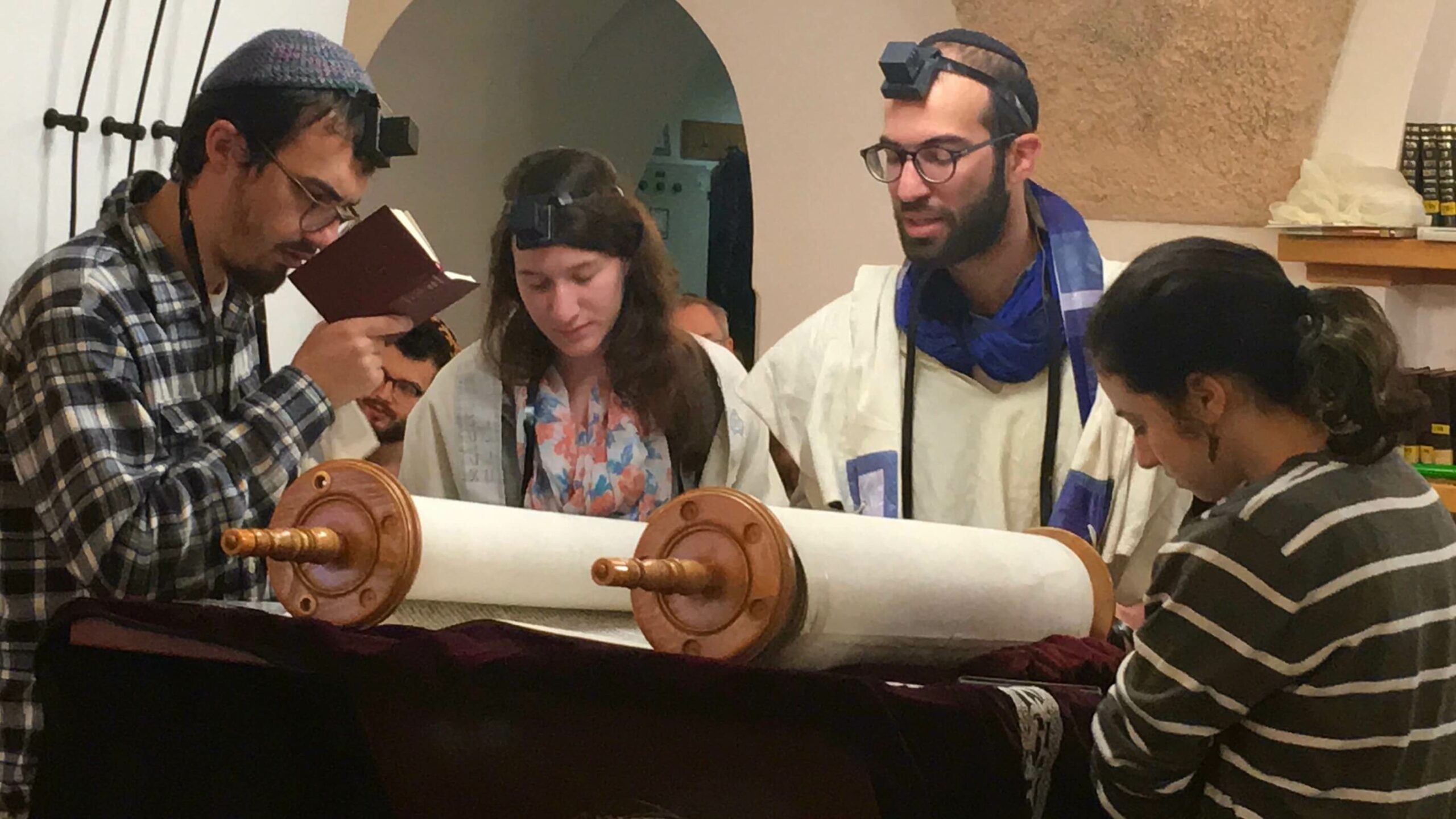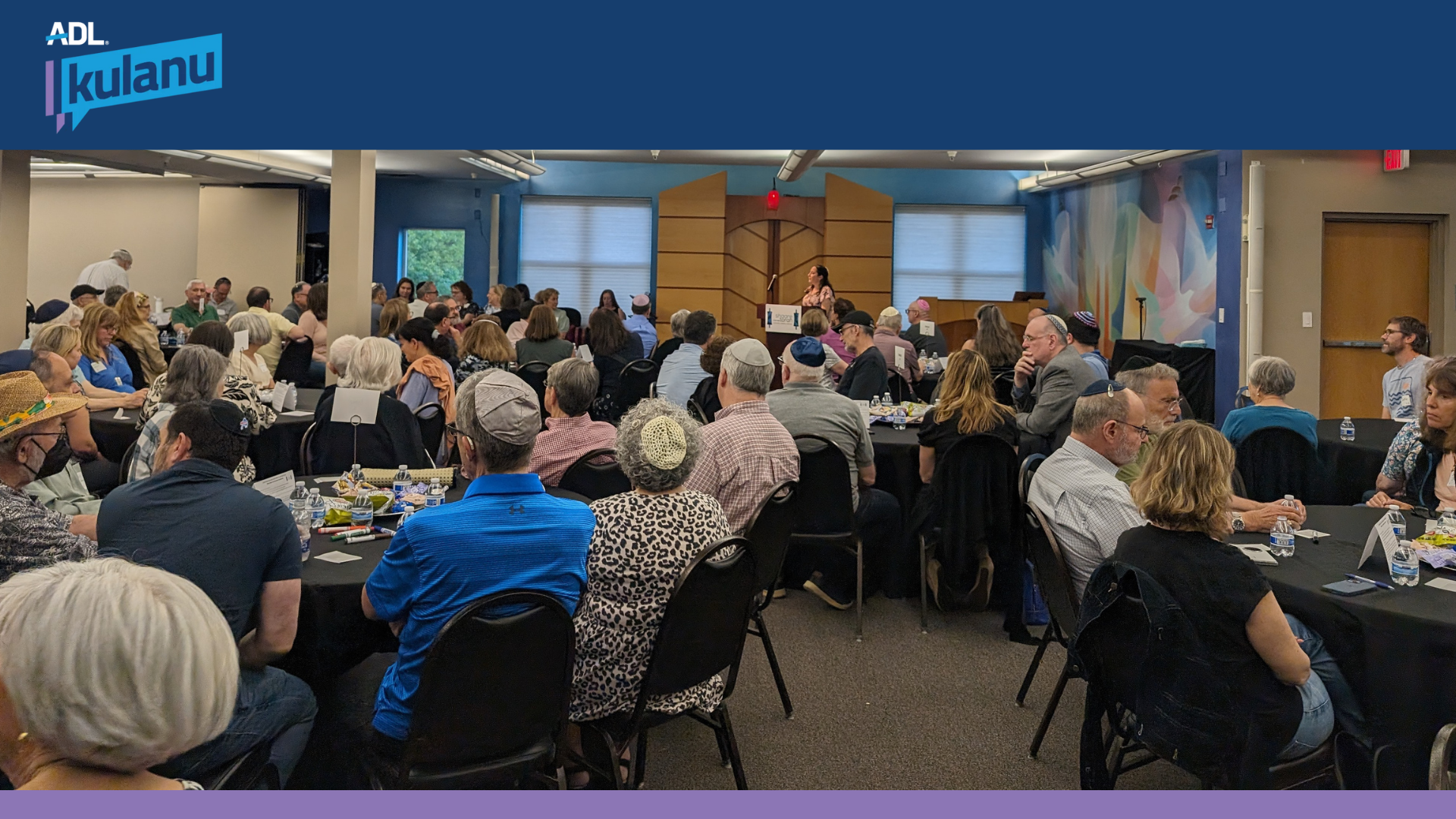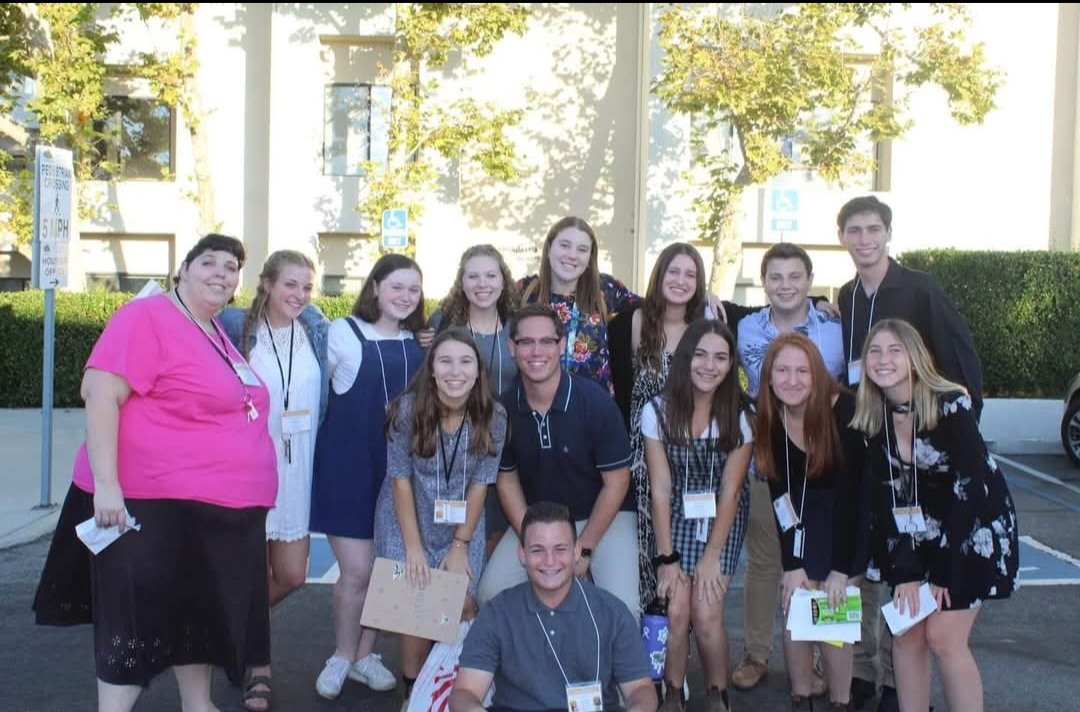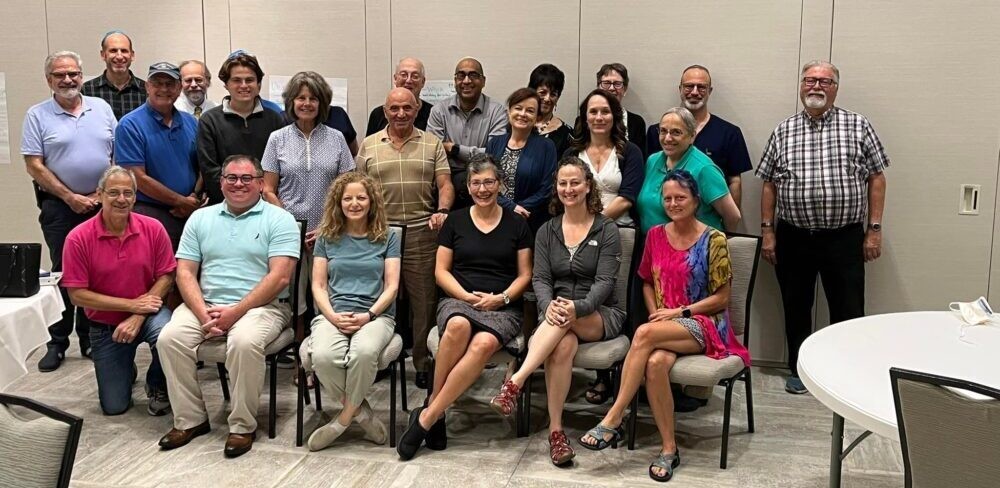

TORAH SPARKS (print friendly version)
Parashat Nitsavim September 28, 2019 | 28 Elul 5779
Annual (Deuteronomy 29:9-30:20): Etz Hayim p. 1165-1179; Hertz p. 878-891
Triennial (Deuteronomy 29:9-30:20): Etz Hayim p. 1165-1179; Hertz p. 878-891
Haftarah (Isaiah 61:10-63:9): Etz Hayim p. 1180-1184; Hertz p. 883-886
D’var Torah: A Grand Gathering
Rabbi Joel Levy, Conservative Yeshiva Faculty & Rosh HaYeshiva
Deuteronomy 29
| ט אַתֶּם נִצָּבִים הַיּוֹם כֻּלְּכֶם, לִפְנֵי יְהוָה אֱלֹהֵיכֶם: רָאשֵׁיכֶם שִׁבְטֵיכֶם, זִקְנֵיכֶם וְשֹׁטְרֵיכֶם, כֹּל, אִישׁ יִשְׂרָאֵל. | 9 You are standing this day all of you before the LORD your God: your heads, your tribes, your elders, and your officers, even all the men of Israel, | ||
| י טַפְּכֶם נְשֵׁיכֶם–וְגֵרְךָ, אֲשֶׁר בְּקֶרֶב מַחֲנֶיךָ: מֵחֹטֵב עֵצֶיךָ, עַד שֹׁאֵב מֵימֶיךָ. | 10 your little ones, your wives, and your stranger that is in the midst of your camp, from the hewer of your wood to the drawer of your water; | ||
| יא לְעָבְרְךָ, בִּבְרִית יְהוָה אֱלֹהֶיךָ– וּבְאָלָתוֹ: אֲשֶׁר יְהוָה אֱלֹהֶיךָ, כֹּרֵת עִמְּךָ הַיּוֹם. | 11 that you should enter into the covenant of the LORD your God–and into His oath–which the LORD your God makes with you this day; | ||
Parashat Nitsavim begins by painting a picture of a grand gathering, called to establish a new covenant between God and the Israelites. To this end, absolutely everyone must be present, and to emphasize the importance of this total inclusion verses 9 and 10 list all the basic categories of Israelite society: men (various ranks), children, women, and strangers. The final catch-all phrase is the hardest to understand: “From the hewer of your wood to the drawer of your water”.
This can be read in a couple of different ways. If it is read locally, refining only the final item on the preceding list, the reference to “strangers”, then ”From the hewer of your wood to the drawer of your water” comes to include the entire gamut of menial jobs done by the lowest social class in Israel – the resident aliens or foreign workers. Foreigners living amongst the Israelites were doing jobs deemed too lowly for the Israelites themselves. On this assumption we still need to dig a little deeper to understand how: “From the hewer of your wood to the drawer of your water” comes as a phrase to encompass all the lowly manual tasks assigned to the gerim.
Various commentators try to read the phrase “From the hewer of your wood to the drawer of your water” in such a way that it does indeed represent all manual labor. Chizkuni explains as follows: “‘From the hewer of your wood’ – this is the slave; ‘To the drawer of your water’ – this is the slavegirl.” The Emek Davar has a different take: “‘From the hewer of your wood’ – the hardest work in the house. ‘To the drawer of your water’ – the easiest work…” Both these commentators try to read this phrase as encompassing all manual labor; from male to female or from the hardest physical work to the lightest! This approach, reading “From the hewer of your wood to the drawer of your water” as referring only to the strangers, serves to reinforce the social hierarchy of Israelite society!
The traditional cantillation of the verse actually pushes us to a totally different and broader take on the phrase. The whole verse is broken up in such a way that “From the hewer of your wood to the drawer of your water” seems to stand alone as a phrase that refers to all Israelite professionals, not just the resident strangers. This more expansive reading is most perplexing. If we were seeking an all-encompassing phrase to include all trades, we might say that the gathering included all people “from garbage collectors to merchant bankers” or “from paupers to kings” i.e., we would try to represent the whole of society by talking about its extremities – its richest and poorest members. “From the hewer of your wood to the drawer of your water” seems like a strange phrase because both of those people are drawn from the class of manual laborers; presumably both drawn from the bottom of the socio-economic pile!
To solve this problem Rabbi Shimshon Raphael Hirsch and Prof Yaakov Speigel from Bar Ilan both posit that the Bible, unlike contemporary English, often uses an idiom of choosing two very similar items when making an encompassing general statement. They further suggest that the model of society thus described is circular rather than linear. Imagine all the people gathered around Moses in a circle while he encompasses the whole group, swinging his arm in a circle, “From the hewer of your wood to the drawer of your water”! This final reading forces us to think about how we conceptualize the shape of a society: is it a line or a circle? For these commentators “From the hewer of your wood to the drawer of your water” comes to utterly subvert hierarchical descriptions of society, not to reinforce them. The ger or stranger, stands within the circle of an egalitarian society, equal before God, made in God’s Image!
Parashat Nitsavim Self-Study
Vered Hollander-Goldfarb, Conservative Yeshiva Faculty
On this last Shabbat of the Jewish year, in a period of reflection and preparation for the High Holidays, we find an entire passage about Teshuva (returning to God) in our parashah.
1) The entire nation is present to ratify the covenant (29:9-14). Moshe tells the people “You are standing today, all of you, before the LORD your God…to enter the covenant…Not with you alone do I make this covenant, …but also with those who are not with us here today.” Who might he be referring to as those not present who are accountable to the covenant?
2) Shall the people leave the covenant, there will be dire consequences, comparable to the destruction of Sodom and Gomora (29:21-22). What does the use of this image tells us about the story of Sodom and Gomora in the eyes of the people at the time? (They did not printed books at home to check the story…)
3) When all the blessings and the curses befall us and we are displaced among the nations, we will turn back to God (30:1-2). Why are the blessings mentioned in this section that seems to be the result of the horrors of the curses? What might be their connection to returning to God?
4) When we have returned to God and to the land, the curses that were included in the covenant will befall the enemies that chased us (30:7). Why is this part of the process of returning?
5) We are told that the key to survival in the land that we are brought to is adherence to the Mitzvot of our God (30:15-20). How might this commitment guarantee survival in the new form that the community is about to find itself in the land?
D’var Haftarah: The Possibility of Renewal
Rabbi Mordechai Silverstein, Conservative Yeshiva Faculty
In this last of the seven special haftarot of consolation (shiva d’nihamta) which follow Tisha b’Av, the prophet expresses his all-abiding concern for Jerusalem and the nation. As we have often mentioned during these seven weeks, these prophecies were a message of encouragement for those who have returned from Babylonian exile to rebuild the nation after seventy years in exile. The people’s anxiety is evident in the messages that the prophet seems obliged to deliver: “For Zion’s sake I will not hold My peace, and for Jerusalem’s sake, I will not rest until her triumph goes forth as brightness and her salvation as a torch that burns. And the nations shall see your triumph and all the kings your glory and you shall be called by a new name which the mouth of the Lord shall mark out.” (62:1-2)
It is clear from this prophecy that the newly reconstructed nation does not want to be known for having been rejected by God, living in the shadow of its exile and destruction. The prophet reassures them that God’s providence is with them and that they will assume a newly reclaimed identity. In a midrash from the period of the Mishnah, this idea is transformed from a message of national encouragement into one which offers reassurance that it is possible for the sinner to become renewed. This message is particularly relevant in these days before the Yamim Noraim (the Days of Awe) where the idea of judgment comes to the fore. The nation’s political insecurity is replaced by the spiritual insecurity of a nation overwhelmed by its sin when coming before God for judgment:
In the future, the congregation of Israel will say before the Holy One, blessed be He: “Master of the universe, my witnesses (against my sins) still exist, as it is said: ‘Call heaven and earth to witness against you this day’. (30:19) God replies to her (Israel): “Behold, I shall cause them to pass away, as it is said: ‘For behold, I create new heavens and a new earth’. (Isa. 65:17) Israel says to God: “But, Master of the universe, I now see the places which I corrupted, and I am ashamed, as it is said: ‘See your way in the valley, (know what you have done)’. (Jer. 2:23) God replies: “I shall cause them to pass away, as it is said: ‘Every valley shall be lifted up’. (Isa. 40:4) She says to Him: “But, Master of the universe, my (old) name exists.” [My reputation as a sinner still exists.] God replies: “I shall cause it to pass away, as it is said: ‘And you shall be called by a new name’. (Isa. 62:2) (adapted from Sifre Devarim 306 Finkelstein ed. p. 329-330) Is it possible for a person or a nation which has done wrong to change, to acquire a new and improved identity (assume a new name)? Is teshuvah (repentance) possible? This is the crucial question at this season. Our critical faculties would have us say that the answer is no. Time is linear and once a wrong has been done, it cannot be taken back. The answer of this midrash, however, is the opposite. God changes the rules of the game. When a person or a nation make constructive change, God, as it were, can change the person’s name, rendering them someone “new”! Thus changed, we are again able to stand confidently before God and others without the shame of our past.










